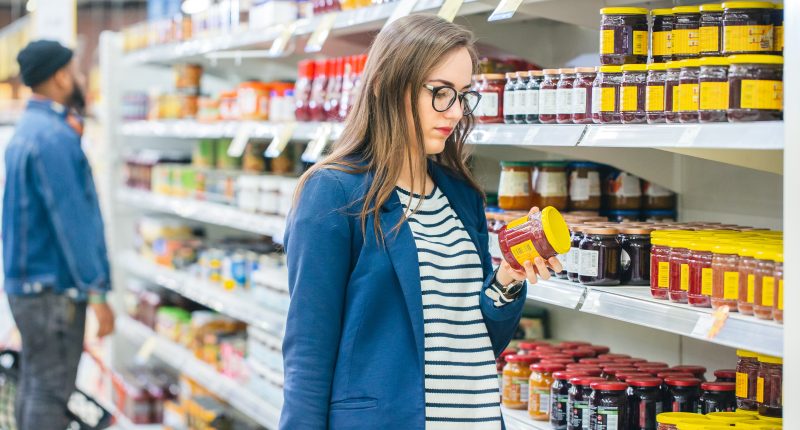IT has taken two years of the cost of living crisis for the competition regulator to tell us what every shopper has seen for themselves at the checkout: Big food brands have been ripping us off.
While shoppers have been struggling to pay for essential groceries and cutting back how much food they buy or even skipping meals, the biggest food manufacturers have been fattening up their profits.
The competition regulator today found that makers of Heinz baked beans, Hellmann’s mayonnaise and Felix cat food have hiked their prices far more than the extra costs they have faced.
They have whined that they have faced higher transport, energy, labour and wages but their billions on the balance sheet can suck up some of the pain.
Try telling that to someone having to choose between putting on the heating or eating as they face paying exorbitant energy costs, record high rents and soaring food bills.
Food inflation hit a record 19 per cent this year, but these giant companies have still been stuffing consumers with increases double or even treble that in order to keep their profits high.
READ MORE COST OF LIVING
The big food brands have what is known as “purchasing power” because decades of customer loyalty means supermarkets have to sell them.
“Beanz Meanz Heinz” is a catchphrase dating back to the sixties, while mayo fans think only Hellmann’s will do.
Because of this, the Big Food lot know they can charge whatever eye-watering price they want and retailers will still stock their products and shoppers still buy them.
Last year, when Tesco’s shelves were cleared of Heinz products because of what the supermarket called “unjustifiable price increases”, the supermarket saw customers drift to rivals which still stocked them, even at higher prices.
Most read in Money
The CMA calls them “must-stock items”, although there are growing signs that cash-strapped shoppers have had enough and are switching to cheaper options.
A single tin of Heinz Beanz costs £1.40 at Tesco, 40 per cent more than a year ago, while a can of its soup costs £1.70.
Hellmann’s has also been shrinking its sizes by 200g while hiking the price by 15p, meaning it is 38 per cent more expensive per gram.
By comparison, a can of Tesco’s own baked beans is 50p.
Nowhere is greedflation more outrageous than in baby milk formula, where prices have shot up by a quarter.
It is possible to make do without beans, but babies can’t make do without milk.
Public health stats show that only a quarter of babies are exclusively breastfed in the first six months, suggesting that 75 per cent will need to be fed by formula at some point.
There is very little customer switching and the market is gripped by just two companies.
Danone and Nestle have an 85 per cent share of baby formula through their brands Aptamil, Cow & Gate and SMA milk.
The CMA has found that a new parent spends on average £1,000 in the first year of a baby’s life on formula, and £500 more than when buying the only own-brand on the market, Aldi’s Mamia.
Kendamil, a new entrant, has swelled its profit margins from four per cent of sales in 2020 to 20 per cent last year.
The CMA has said it wants to investigate the market further, but why on earth hasn’t it acted sooner?
Even Aldi’s cheapest tin of Mamia infant milk, at £9.39, is well above the £8.50 Healthy Start vouchers given for struggling families.
Not being able to afford a tin of milk with the support has already led to some families putting their babies at risk by excessively watering down formulas to make the milk go further or switching tots to food before their bodies are ready.
And unlike the rest of the food market, old rules put in place to ensure that breastfeeding is prioritised make it illegal for retailers to put formula on promotions or let customers use their loyalty cards for cheaper prices or use points to pay.
All this does is punish at least half the mums in the country with scandalously high prices.
It is outrageous and Iceland is effectively knowingly breaking the law at the moment by cutting formula prices.
Shoppers can save £4.75 on Kendamil stage 3 milk, 800g, down from £14 to £9.25. Iceland claims to be selling at cost.
The CMA has come to the right conclusion but far too late.
It wasted time going after the wrong target.
Scale of the rip-offs
Earlier this year the regulator hauled in supermarket bosses because it is easier to make the Big Four the baddies.
Yet while supermarkets also make billions from food sales, the CMA only had to look at the thin profit margins and realise the big food manufacturers make six times more.
The CMA’s only powers are to name and shame the big food brands and alert shoppers to the scale of the rip-offs.
It will take at least another six months to investigate the baby milk market.
Only then can the CMA make recommendations to the Government to fix the market.
Unless it finds evidence of wrongdoing or price fixing, it can’t hand down any fines or really force the companies to change their price gouging ways.
Industry experts say the UK has the most competitive food retail market in the world, largely because we show little loyalty and switch and change shops to find the best deals on offer.
Read More on The Sun
That can’t happen with baby milk.
The CMA has failed to protect shoppers from greedy petrol forecourts and now it has also failed to protect the most vulnerable babies, some of whom are starving because rich companies are price gouging.














